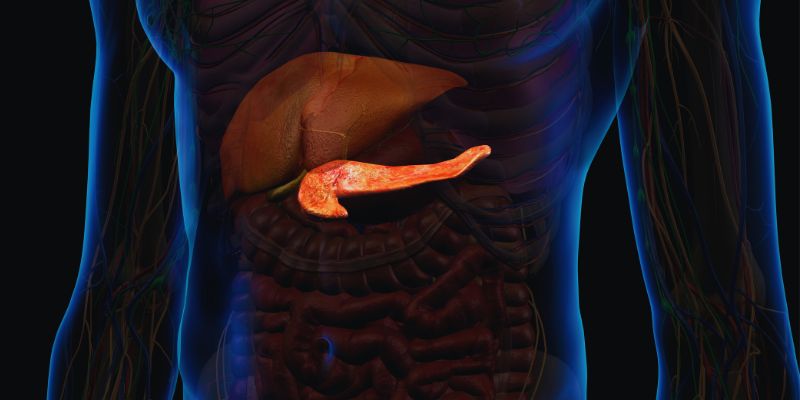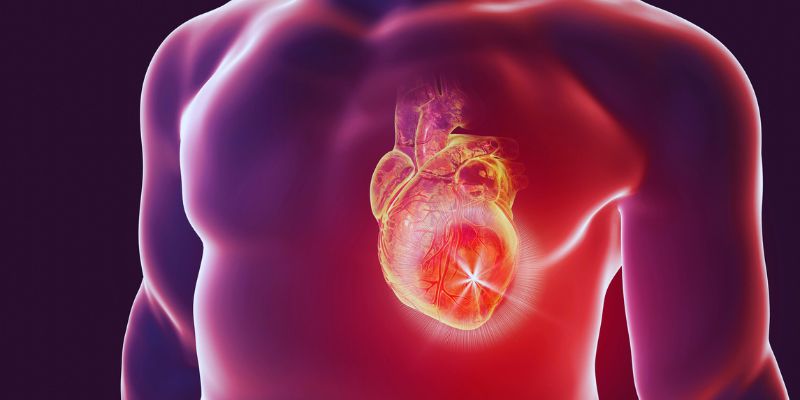Is Diabetes Considered an Endocrine Disorder: A Complete Understanding
The pancreas is the key gland in the endocrine system that is responsible for producing insulin. Insulin carries glucose from the bloodstream and maintains the body's sugar level. When the pancreas cannot produce enough insulin or the body cannot use insulin properly, it raises the blood sugar level, which ultimately leads to diabetes.
If sugar levels remain high for a long time, it can also cause various other health problems, including blindness, kidney diseases, nerve damage, or even heart attacks. To treat this condition, you should better understand this endocrine disorder. So, let's continue reading this article to learn every little detail regarding this condition, understand the role of the pancreas, and learn how to treat this disorder.

Understanding the Endocrine System and Diabetes
The endocrine system consists of glands that produce hormones that serve as chemical messages or signals to target cells. Those cells bring out a specific change or effect in response to that message (chemical signal or hormone). The endocrine system, along with the immune system and nervous system, ensures the proper functioning of the body. The human body has different glands, including the pituitary gland, adrenal glands, and pancreas.
The pancreas is linked to diabetes as it is responsible for insulin production. Insulin (a hormone) helps deliver sugar from the bloodstream into the cells. It is stored in cells as energy. The body and muscles use this energy throughout the day to perform different activities. When your endocrine glands (like the pancreas) produce excessive or too few hormones, more than your body normally should produce, this disruption leads to an endocrine disorder (like diabetes).
When hormones in the endocrine system are disturbed, their communication with respective target cells is affected. In this case, insulin is not produced in enough quantity to keep blood sugar at a normal level. Glucose molecules start accumulating in the bloodstream because they don't convert glucose into energy for the cells, leading to low energy levels and higher blood sugar levels.

Understanding The Role of Pancreas
The pancreas is a glandular organ that acts as an organ in digestion and as a gland in the endocrine system that produces different enzymes and hormones. The pancreas produces two hormones (glucagon and insulin) linked to diabetes. Let's know more about these two hormones here:
Glucagon
Glucagon helps to regulate blood sugar and prevents it from dropping below normal levels. It is produced when an individual is fasting or taking an excessive protein diet. Our Body needs energy, and it takes it by breaking down sugar molecules in your blood. Glucose is the main source of energy in our body. For example, our brain and muscles derive energy from glucose. When you are not taking enough sugar, the pancreas releases glucagon, which increases blood glucose levels. Suppose there is a defect in the alpha cells of the pancreas, which are responsible for the production and release of glucagon. In that case, blood sugar may drop too low, causing complications.
Insulin
Insulin opposes the functioning of glucagon. Unlike glucagon, insulin reduces blood sugar levels. It is released from the beta cells of the pancreas. When an individual eats excessive carbohydrates or sugar, insulin helps balance high amounts of sugar in the blood. It breaks down sugar molecules in the blood and stores them in muscles and cells in the form of energy. Suppose the sugar in the blood is not broken down effectively because there is insufficient insulin production. In that case, this condition is called insulin resistance. If it is not managed and treated, then it becomes a disease known as diabetes mellitus.
Type 1 And Type 2 Diabetes Concerning Endocrine System
Both types of diabetes are caused by the ineffective function of beta cells in the pancreas; lets understand that in detail here:
Type 1 Diabetes is an autoimmune disease that mistakenly affects the pancreas's beta cells, which are responsible for producing insulin. It can be detected at an early age. People with T1D have to check their blood sugar levels throughout the day. The amount of sugar needed depends upon their muscle activity during the day. They need insulin therapy throughout their lives.
Type 2 Diabetes: It is caused by many factors, including genetics, a lethargic lifestyle, and an unhealthy diet. Insulin production is affected by the abovementioned reasons. When required insulin is not produced, an individual can get diabetes. Although the body produces insulin, it cannot respond (insulin resistance) or is not produced. Medication for type 2 diabetes includes medicines that increase the body's sensitivity to insulin.
How Does Diabetes Affect The Endocrine System?
Diabetes can affect the entire endocrine system, including thyroid and growth hormones. How? Let's find out.
Thyroid Hormone: Diabetes may cause disturbances in thyroid hormones, which can result in hypothyroidism or hyperthyroidism, thyroid cancer, and lumps/nodules in the thyroid. These hormone disturbances can also result in weight loss, mood changes, and fatigue.
Growth Hormone: Diabetes may also affect growth hormones, especially in children and adolescents. It may suppress the production of growth hormones.
Endocrinology and Diabetes
Endocrinology is a medical specialty that diagnoses diseases related to endocrine systems, including diabetes. They diagnose diabetes by performing different tests, such as fasting blood sugar tests, Hb1C tests, and oral glucose tolerance tests. These tests help them understand the severity of diabetes so that they can treat the patient accordingly.
Medications and lifestyle modifications may differ from person to person based on their diabetes. Endocrinologists have advanced therapies and treatments for diabetes, such as insulin pumps and continuous glucose monitoring (CGM). Insulin pumps provide a continuous supply of insulin because the pancreas cannot do so, whereas continuous glucose monitoring (CGM) provides on-time glucose readings. It assists doctors in determining the required insulin dosage and preparing customized treatment plans.
Benefits Of Treatment With Endocrinology:
- Controlled blood sugar
- Improved lifestyle
- Weight management
- Preventing complications
- Prevention of other endocrine disorders
Conclusion:
Diabetes is deeply related to the endocrine system. It works with hormones that communicate with target cells. Hormones that are responsible for regulating blood sugar are called insulin and glucagon. If any of these is not secreting the required amount, then this leads to complications. Suppose insulin in the beta cells of the pancreas is not available in the body or is not being produced in the required quantity. In that case, it will increase glucose levels, causing hyperglycemia. If not managed properly, it will result in a chronic condition called diabetes mellitus. Different medications are available to treat this condition. Besides that, by making lifestyle changes, you can control this condition.












